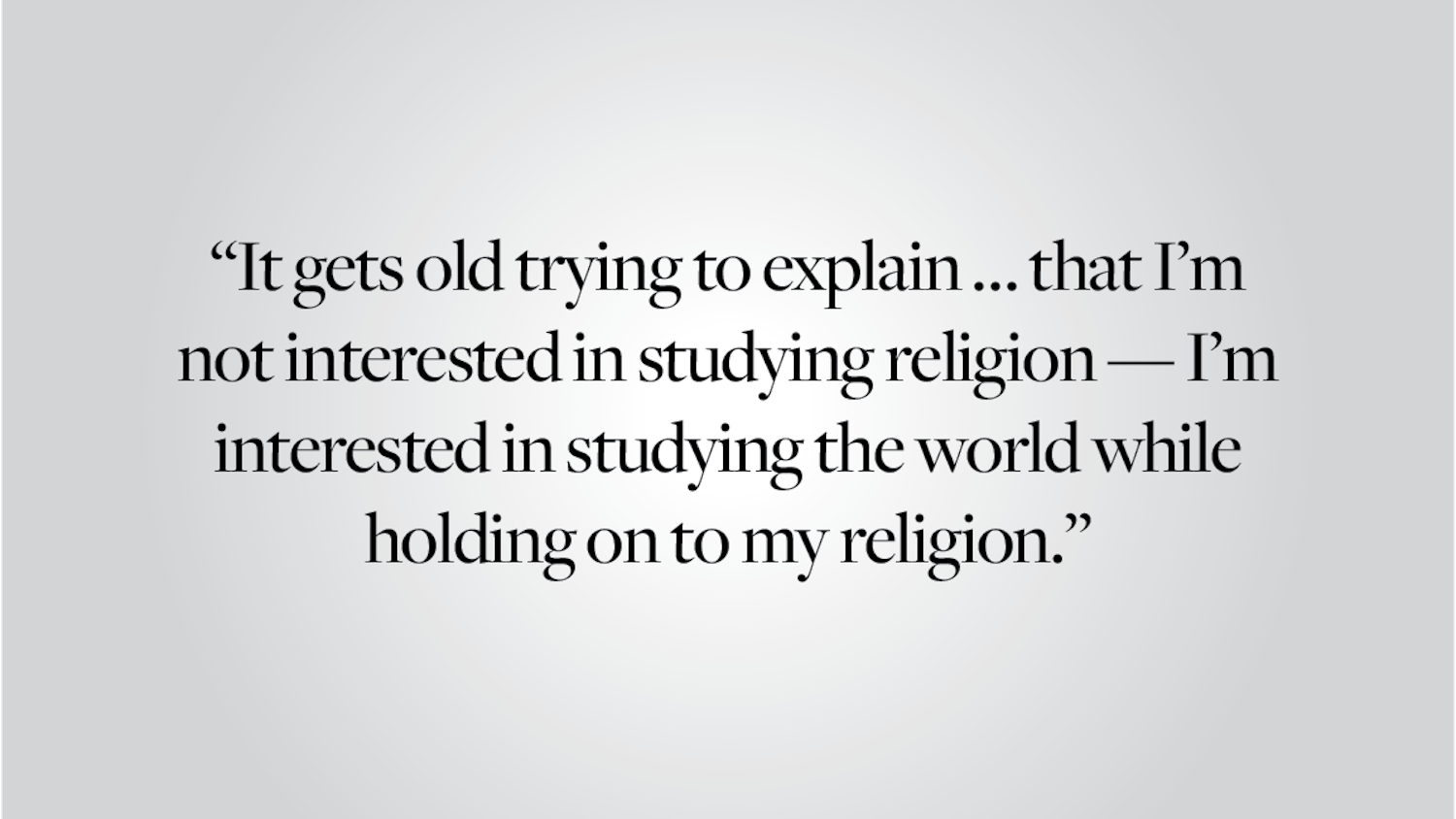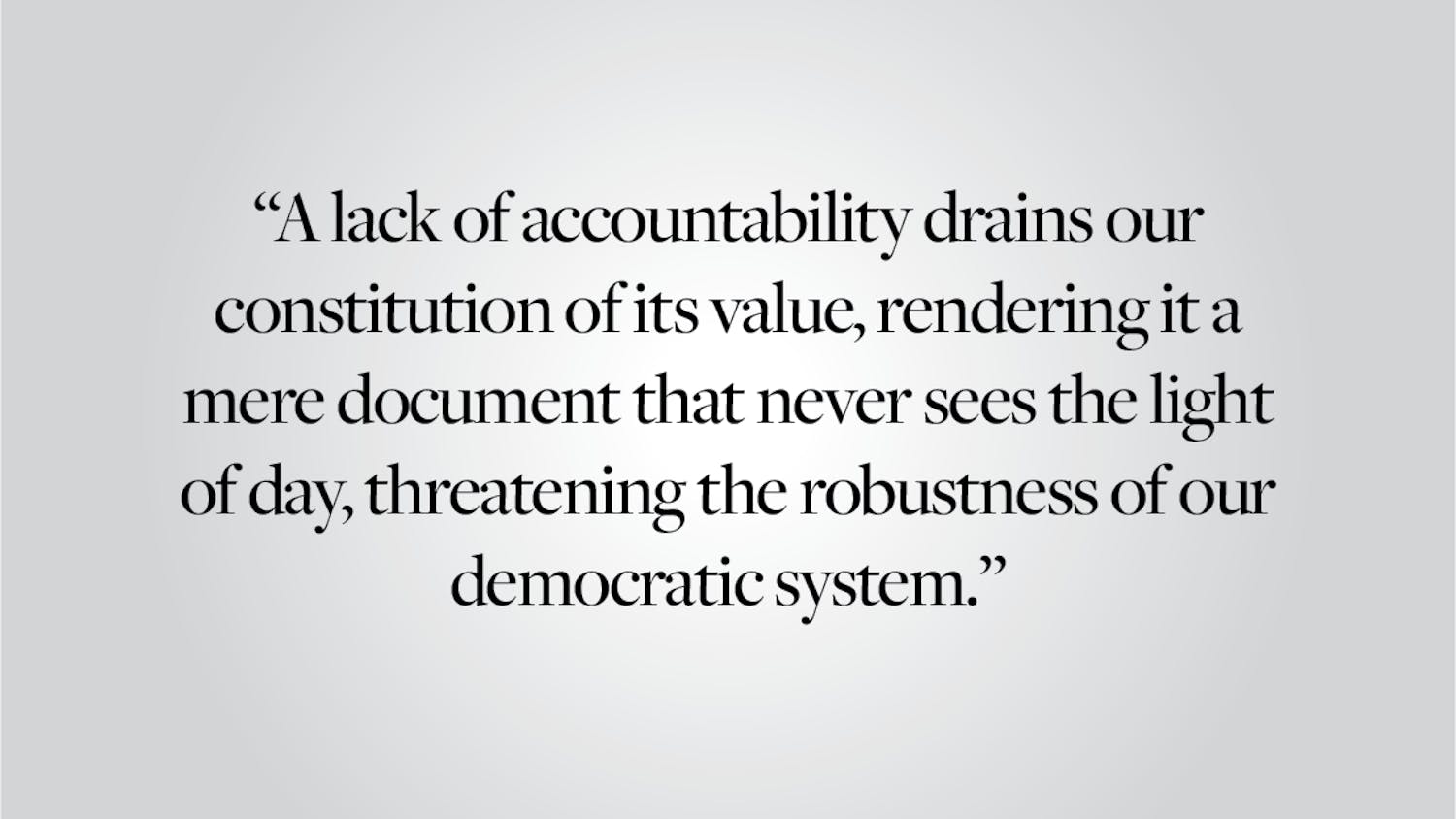I first discovered the Absolute Quiet Room in the Rockefeller Library over the summer. I was roaming the library, looking for a place to sit and read a research paper — the sort that had obscure mathematical symbols scattered on every page — and when I saw a worn-out red armchair in the distance, I was immediately drawn to it. I walked over to the glass door, pulled it open and walked in. I somehow missed the stencilled writing on the door that read: “Absolute Quiet. Laptop computers and cell phones prohibited.”
When I left the room two hours later — having understood the paper surprisingly well — I knew I had discovered the perfect study spot. But in my subsequent visits, I noticed the writing on the glass wall; I also noticed that no one was following the rules. This made perfect sense to me: Most students simply can’t do their school work without their laptops anymore. Writing long papers, typesetting problem sets in LaTeX and performing complicated calculations in MATLAB or Stata all require a computer. But as I started bringing my laptop along to the Absolute Quiet Room, something seemed amiss: The work didn’t go as well, and my concentration wasn’t as strong as before.
I quickly found the culprit: With my laptop came the spectre of the Internet, and with it came the temptation to take a quick glance at my email or check a news website. It was then that I fully understood the Absolute Quiet Room’s appeal: The room was a haven from noise and distraction — a place to get work done. But having access to the Internet meant a world of distractions was only a click away.
Brown should have a library space without Internet access: not as big as the Absolute Quiet Room, but a small room, somewhere — perhaps in Orwig — completely offline. A place to retreat to, to finish a long paper or a particularly tough problem set. Now certain, unsympathetic people would say that instead of trying to change the technological infrastructure of a library, perhaps I should just quit whining about online distractions and exercise some self-control and discipline. They would be wrong.
In 2012, Wired magazine published an article titled “Conserve Your Willpower: It Runs Out.” The article — largely based on the research of Florida State University psychologist Roy Baumeister — argued that willpower is a limited resource that should be spent wisely. Empirical data aside, this makes intuitive sense: After a long day of classes and studying, you can readily imagine yourself heading to Jo’s for a bout of unhealthy eating and skipping the trek to Nelson. If, while doing work, we are constantly warding off Internet distractions, we are expending scarce mental energy on something that could have been avoided entirely.
Furthermore, having a room without Internet access would reduce the urge to have dozens of browser tabs open and multitask. University of California, Irvine Professor Gloria Mark has done research that underscores the detrimental effects of multitasking and continuous interruptions: higher stress, more frustration and greater perceived effort. Removing Wi-Fi could help avoid the negative outcomes associated with constant distraction and multitasking.
The Absolute Quiet Room is no longer the refuge from distractions I wanted it to be. I am waiting for a new library study space. Perhaps you should be, too.
Tushar Bhargava ’17 is a member of computer science digital literacy group DigLit, currently campaigning to spread awareness about the effects of always being connected to the Internet and can be reached at
tushar_bhargava@brown.edu.




